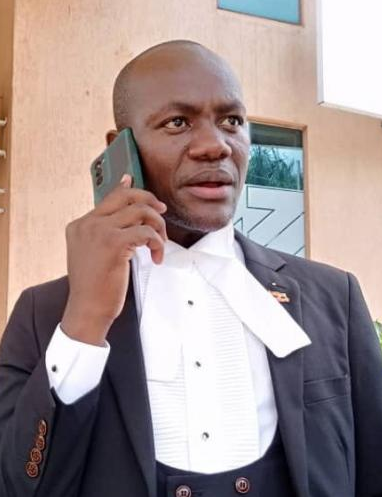September 29, 2023
KAMPALA, Uganda – The High Court has announced that a judgment in the lawsuit filed by lawyer Steven Kalali against the Uganda Law Society (ULS) will be delivered on December 8, 2023. The case revolves around allegations that the ULS denied Kalali and other lawyers the opportunity to participate in the election of their representatives to various statutory bodies.
In a hearing before the Civil Division High Court Judge Boniface Wamala, both Kalali and ULS lawyer Godwin Muhwezi Matsiko appeared for a status update. The court aimed to confirm whether the parties had adhered to the judge’s orders from approximately a month ago, which required them to submit written arguments and reasons why the court should rule in their favor. Both parties confirmed that they had submitted their arguments through the Electronic Court Case Management Information System (ECCMIS), and these submissions were readily available in the court’s records.
Justice Wamala, in an effort to streamline the process and adapt to modern communication methods, announced that the judgment would be communicated via email, eliminating the need for physical attendance.
This legal battle traces its roots back to July 2023 when Steven Kalali, a ULS member, filed a lawsuit against the association. He alleged that the ULS leadership had been selecting representatives for various statutory bodies since 2016, a practice he deemed contrary to the governing Act and election regulations. These regulations require members to elect their representatives through the Annual General Assembly.
Kalali’s legal action listed 24 statutory bodies where the ULS is represented, including the Judicial Service Commission, Anti-Pornographic Control Committee, and Media Council, among others. He argued that the ULS leadership had never conducted elections for these positions since the 2016 General Election Regulations came into effect. In his view, these actions infringed on members’ rights, particularly the freedom of expression, and were both unlawful and lacking in transparency.
Kalali stressed that a professional body like the ULS should be guided by democratic principles and good governance. He pointed out that some individuals had held these positions for extended periods without giving others a chance, which he believed contradicted the principles of good governance, the rule of law, and transparency.
Throughout the case, Kalali maintained that representatives should be elected or nominated with the consent or approval of the respective class they represent, emphasizing that the ULS could not act on behalf of its members without their consent or resolution. He claimed to have engaged the ULS President and the Secretary-General on this matter but found their response to be insufficient.
It’s worth noting that this legal action comes on the eve of the Annual General Assembly for the ULS, scheduled for September 29th and 30th, 2023. Kalali remains resolute, asserting that regardless of the court’s decision delay, illegality remains illegality, and its consequences will be felt at any time.
















